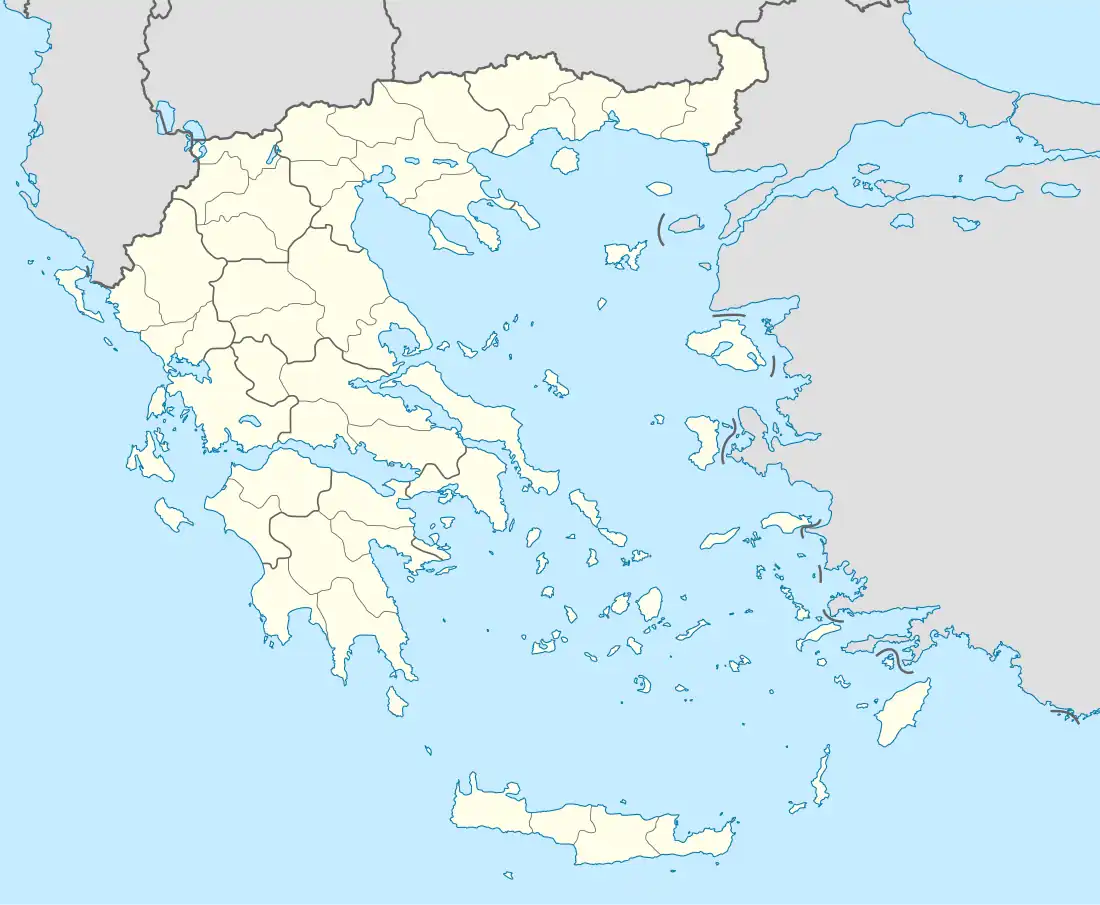Giannochorio | |
|---|---|
 Giannochorio | |
| Coordinates: 40°26′54″N 20°55′31″E / 40.44833°N 20.92528°E | |
| Country | Greece |
| Geographic region | Macedonia |
| Administrative region | Western Macedonia |
| Regional unit | Kastoria |
| Municipality | Nestorio |
| Municipal unit | Nestorio |
| Population (2011)[1] | |
| • Rural | 0 |
| Time zone | UTC+2 (EET) |
| • Summer (DST) | UTC+3 (EEST) |
Giannochorio (Greek: Γιαννοχώριο, before 1927: Γιαννοβαίνη - Giannovaini[2]) is a village in Kastoria Regional Unit, Macedonia, Greece.
Giannochorio was an Albanian speaking village with a Christian population in a wider Slavic speaking area.[3] As a bilingual village, both the Albanian and (Slavic) Macedonian languages were spoken.[4] Later Giannochorio became a monolingual Slavophone village, in particular its female villagers, followed by a new bilingualism with Greek as a second language.[4]
References
- ↑ "Απογραφή Πληθυσμού - Κατοικιών 2011. ΜΟΝΙΜΟΣ Πληθυσμός" (in Greek). Hellenic Statistical Authority.
- ↑ "Name Changes of Settlements in Greece: Giannovaini – Giannochorio". Pandektis. Retrieved 30 March 2022.
- ↑ Embiricos, Leonidas (2008). "Γλωσσικά όρια και πολιτικά σύνορα στα τραγούδια των σλαβόφωνων στην Ελλάδα" [Linguistic boundaries and political borders in the songs of the Slavic speakers in Greece]. Ετερότητες και Μουσική στα Βαλκάνια [Otherness and Music in the Balkans] (PDF). Εκδόσεις ΤΕΙ Ηπείρου – ΚΕΜΟ. p. 59. ISBN 9789608932326. "Η γειτονική ομάδα των χριστιανικών Γραμοχωρίων ή Γιαννοχωρίων ήταν πιθανότατα αλβανόφωνα σε φάσn σλαβοφώνnσnς."
- 1 2 Kostopoulos, Anastasios (2018). Εθνικά κόμματα και πρώιμος μακεδονισμός: η πολιτική και κοινωνική διάσταση της εθνικής διαπάλης στην ύστερη οθωμανική Μακεδονία [National parties and early Macedonian particularism/nationalism (macedonism): Political and social aspects of national strife in late Ottoman Macedonia] (Ph.D.). University of the Aegean. p. 59. Retrieved 28 March 2022. "Στα Γιαννοχώρια του Γράμμου, π.χ., η διγλωσσία (σλαβομακεδονικά-αλβανικά) παραχωρεί σταδιακά τη θέση της στην καθαρή σλαβοφωνία (ιδίως όσον αφορά τις γυναίκες) ή σε μια νέα διγλωσσία, με τα ελληνικά στη θέση της δεύτερης γλώσσας."
This article is issued from Wikipedia. The text is licensed under Creative Commons - Attribution - Sharealike. Additional terms may apply for the media files.